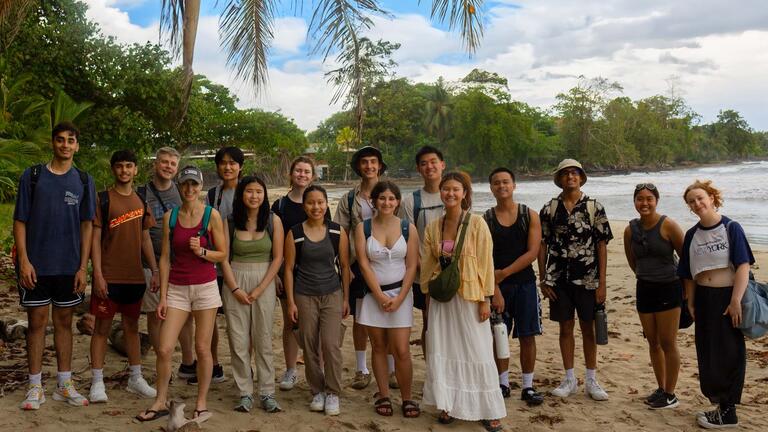
Financing & Tuition
There are many funding opportunities available through various programs and organizations. Some of them are country and/or program-specific while others are based on financial need and merit. There are a few based on cultural and ethnic heritage as well.
Research costs and sources of funding by referring to program's website or contacting the program coordinator directly, meeting with a USF financial advisor to obtain your University aid award letter and private loan options, contacting study abroad alumni to obtain an estimate of living abroad costs, and a study abroad advisor for outside scholarships. Know your resources and seek advice. Prepare and plan in advance.
USF Sponsored Programs
Student pays for USF credit, in which courses and credits will appear directly on his/her USF official transcript; therefore, student pays USF tuition rate to USF as any normal semester. As a result, all USF financial aid such as USF grants and scholarships, and federal and state aid (except Federal Work Study) automatically apply to the student's term abroad.
- Student is required to be full-time enrolled (minimum 12 units) while studying abroad. Falling below full-time enrollment can negatively affect government financial aid.
- Student does not have to complete a Leave of Absence Form because he/she is technically still enrolled as a USF student.
- Spring semester students must remember to take care of USF Financial Aid renewals for the next academic year.
- Remember to apply for financial aid via the Free Application for Student Aid (FAFSA) in January-March for the next academic year.
- Student is advised to meet with a Student Enrollment Services Counselor prior to departure to discuss financial aid matters while abroad.
- In addition to USF tuition, host programs also have a program fee to cover such costs as housing, meals, activities, and other expenses. Please meet with a study abroad advisor for program-specific costs.
Direct Deposit
Excess funds may be electronically deposited to your bank account, which could be used toward housing fees at your host university. The easiest and fastest way for you to receive your financial aid refund is to sign up for direct deposit. You can sign up for direct deposit by downloading and completing the form from USF’s Business and Finance site.
External Programs
Student pays program/institution tuition and fees directly to third-party provider (e.g., AIFS, IES, Semester at Sea, New York University, CIEE etc.) Tuition and fees vary per program and include different things.
- Student must complete a Leave of Absence form for the semester(s) he/she will be studying abroad. He/she is not enrolled as a USF student, and is not eligible for USF financial aid during his/her semester(s) abroad.
- There are funding opportunities such as merit or need based aid, grants and scholarships provided by various third-party organizations. If the host program cannot provide financial assistance, USF's Student Enrollment Services can assist in finding private loans.
- Grades are not calculated into USF GPA. Student receives transfer credit from an accredited institution, and can still fulfill major, minor, core, and elective requirements.
- If student receives Federal and/or State financial aid (Cal Grant, Federal Subsidized and Unsubsidized loans, etc.) from USF, it is advisable to see a financial aid counselor to discuss important steps to reserve a Cal grant for the return semester, or to put Federal loans into deferment or forbearance, which allows these loans to remain in a non-payment status while the student is on leave.
- Federal Stafford student loans will enter repayment in six months from the last day of a student’s half-time (or more) enrollment status at USF. In order to defer repayment, you must file an In-School Deferment with the host school (if host school participates in aid programs), or Forbearance if host school does not have an OPE-ID. For more information, and to download deferment forms, visit the Federal Direct Loan Service’s web site, (click on “forms” to get a list of Deferment and Forbearance forms). Please consult a Financial Aid Loans officer for assistance.